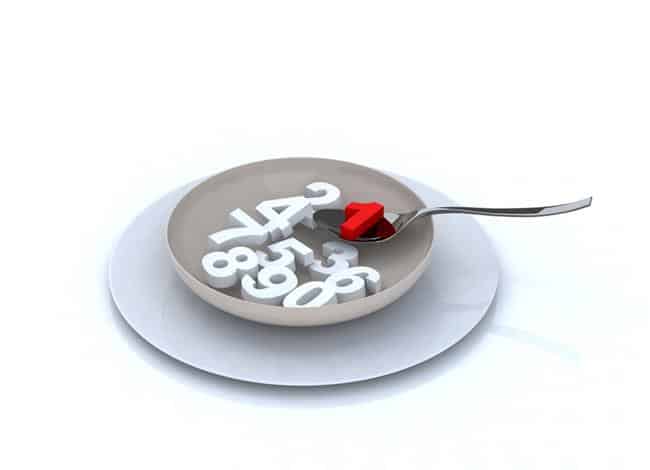
Metabolism is the word we use to describe how much energy the body uses. Increasing metabolism is appealing for weight loss and weight maintenance because that could mean your body is using more energy and may be less likely to store fat.
Increasing or slowing down metabolism usually occurs over a period of time and can involve many factors.
Metabolism can be broken into three main categories: basal metabolic rate (BMR), thermic effect of food (TEF) and physical activity.
The BMR is the major component for metabolism and comprises between 50-70% of total energy used for metabolism.
BMR includes keeping organs functioning, heart beating, diaphragm moving, etc.
It is the basic amount of energy needed to keep you alive. Over time, BMR can shift up or down.
TEF is only about 5-10% of total energy used for metabolism.
This is the energy needed for the digestive system to break food down and absorb nutrients.
Some foods may have a higher TEF than others, but the relative overall impact is still small because TEF is a small fraction of total energy used.
Physical activity’s contribution to total energy used can vary but is usually around 20-30%.
Weight loss efforts usually focus on increasing the amount of energy burned from physical activity because it is something we can drastically increase.
Physical activity can impact muscle mass which may also have an impact on BMR levels.
Below are things that can cause metabolism to slow down. However, the way metabolic rate is impacted can have individual variance.
Age
One of the main factors contributing to metabolic rate is age.
As a child and teenager, metabolic rate is very high because the body is still growing.
The body uses a lot of energy to make new cells and repair damage in the body.
As a person ages into late adulthood, metabolic rate decreases.
BMR levels slowly decline every decade, and most estimates suggest BMR declines 1-2 percent from the 20’s to 40’s and may go up to decreasing by 10% every decade over 40’s.
While a slowing of metabolism as we age may seem inevitable, you can blunt the slowing effect of age on metabolism through exercise.
As we age, exercise levels tend to naturally go down. This contributes to the slowing of metabolism.
According to a 2001 study (1), older men who had the same exercise frequency as younger men had similar BMR levels.
Therefore, the age-related decline in BMR was not seen in older men who maintained a high level of exercise.
The key to avoiding a slowdown in metabolism may lie in continuing to keep exercise levels up as we age.
Cutting calories
Following a low calorie diet can be recommended for weight loss. However, what also happens when calorie intake is lowered is a decline in BMR.
The body will adjust metabolism to slow when calories are drastically cut.
A 2009 study (2) examined data from people following one of four diets for six months: 25% calorie reduction, 12.5% calorie reduction plus 12.5% exercise increase, a low calorie diet or a normal diet.
The low calorie and 25% reduction calorie groups had weight loss after 6 months, their BMR levels were lower.
The group with a combination of calorie reduction and exercise lost weight and did not have a lowered effect on BMR.
Researchers from this study suggest calorie restriction without exercise can lower BMR levels, but exercise may help protect against this effect.
When someone drastically cuts their calorie level, like on a fad diet, their BMR levels may be lowered.
When that person goes back to a “regular” diet, weight gain may occur because BMR levels were lowered.
Smaller body mass
A smaller body size means your metabolic rate slows down. This may seem counter-intuitive, but as someone goes through weight loss their metabolic rate actually drops.
Think of it this way: a smaller body needs less energy to function that a larger body.
This is one reason why calorie intakes and exercise levels should continue to be adjusted throughout weight loss and why a weight loss plateau may happen.
Genetics and hormones
Another major impact on metabolism is your genetic makeup. Genes can have a large influence on metabolic rate.
Some people may have a genetic set-up where they naturally have a higher metabolic rate and vice versa.
Researchers are still uncovering how genetics have a role in metabolism and overall health.
We can’t change our genetics, so most health experts don’t dwell too much on genetics affecting metabolism.
However, they do play a role, it just remains to be clarified how much of a role they influence metabolic rate.
Hormone levels can also influence metabolic rate. Certain hormones, like cortisol, can increase fat storage and may affect metabolic rate.
Thyroid levels can also impact metabolism, and if it is too high or low changes in metabolism can occur.
As we age, the levels of hormones in the body can shift. This is also one reason why metabolic rate changes with age.
How to increase metabolism: Exercise
We can’t change our genetics, but there is something you can do to help combat the slowing down of metabolism.
Keeping exercise levels high can be protective against age related decline of BMR and may help offset lowered BMR with calorie reduction.
Increasing muscle mass from resistance exercise may also have a positive effect on boosting metabolism.
However, be wary of claims that increasing muscle mass will drastically boost metabolism levels.
According to some research (3), increasing muscle mass by 2.5-4.5 pounds may only increase BMR by about 50 calories per day.
Exercise has many positive effects on the body, and the way exercise can help combat the slowing of metabolism as we age is still being studied.
Even though increasing muscle mass may not boost metabolism exponentially, increasing muscle mass is important for many other health reasons.












